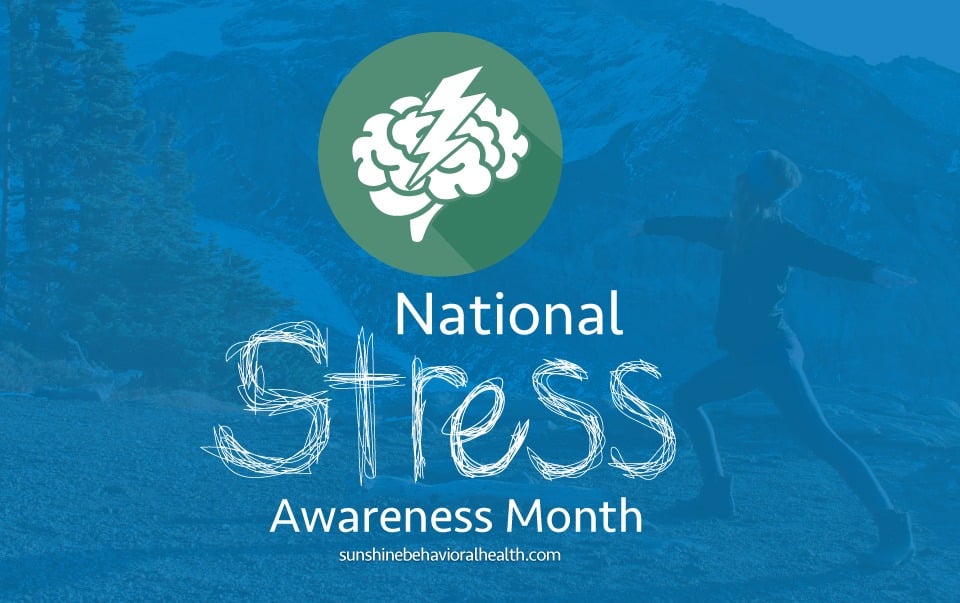
Stress Awareness Month
April is Stress Awareness Month, and for good reason. Stress is extremely common, and in light of the global pandemic, anxiety, worry, and fear are high. Life has gone from schedules and routines to uncertainty and change. Finances, schooling, and day care are concerns for many. Working and learning from home are challenges, and people are worried if they or their loved ones will contract the COVID-19 coronavirus. These concerns are valid, and for many, they’re in addition to life’s usual worries and concerns. The trouble is, even though so many of us experience stress daily, many of us aren’t aware of what stress really is, or what happens when people experience high levels of stress for long periods of time.Why We Need a Month for Stress Awareness
Over the years, stress has affected more people across the globe. In 1992, to acknowledge that the speed of life can be difficult to handle, we began commemorating Stress Awareness Month. During the month, health care professionals work to increase understanding of stress, explain its triggers, and highlight ways to reduce its negative effects. Some stress can be positive and work as a motivating factor, but too much of a good thing can create problems. Stress triggers a surge of epinephrine (also known as adrenaline). This substance is a hormone that creates a fight-or-flight response. For short amounts of time, this enhanced state of readiness can be a good thing. It sharpens your senses, increases your heart rate, and can improve your performance in certain tasks. However, too much stress can have short-term and long-term health effects, including:- Headaches
- Sleeplessness
- Sore muscles and joints
- Irritability
- Fatigue
- Inability to focus
- Upset stomach
- Depression
- Anxiety
- Chest pains and rapid heart rate
- Increased blood pressure
What Causes Stress?
If you don’t know what causes stress, how can you fight it? After all, it can be almost impossible to prevent stress unless you choose to stop living life. There are many different stress triggers, and different people deal with situations in their own way. Because of these variables, what stresses out one person might be no big deal for another. Common causes of stress include:- Major life changes (i.e. moving, losing or changing jobs, getting married, having children, etc.)
- Finances
- Job problems
- Health concerns
- Family issues
- Work and life balance
Combating Stress for a Healthier Life
The good news is that there are many different ways to fight stress so you can live a healthy, happy life. In fact, if you practice different stress-busting tactics, you may find that you’re feeling a lot more relaxed and a lot less tense and anxious. There are many ways that you can manage stress. According to the American Heart Association, some of the most effective tactics include:- Planning ahead so you can slow down. Examine what activities will require attention and plan ahead so you can take time to work on these tasks. This approach can help you feel good about a job well done and take pride in your achievements.
- Finding enough sleep. It’s what we all want, and it’s what we all really need. Sleep can be one of the most effective ways to reduce stress. In fact, researchers believe that a lack of sleep can actually contribute to stress and worry.
- Taking time to move. Working out might seem like the last thing you want to do during your lunch break or after a tough day, but exercise can effectively fight stress. When you exercise, your body releases feel-good chemicals known as endorphins to help boost your mood, improve sleep, and make you feel better in general.
A Message From Our CEO
Medical disclaimer:
Sunshine Behavioral Health strives to help people who are facing substance abuse, addiction, mental health disorders, or a combination of these conditions. It does this by providing compassionate care and evidence-based content that addresses health, treatment, and recovery.
Licensed medical professionals review material we publish on our site. The material is not a substitute for qualified medical diagnoses, treatment, or advice. It should not be used to replace the suggestions of your personal physician or other health care professionals.




